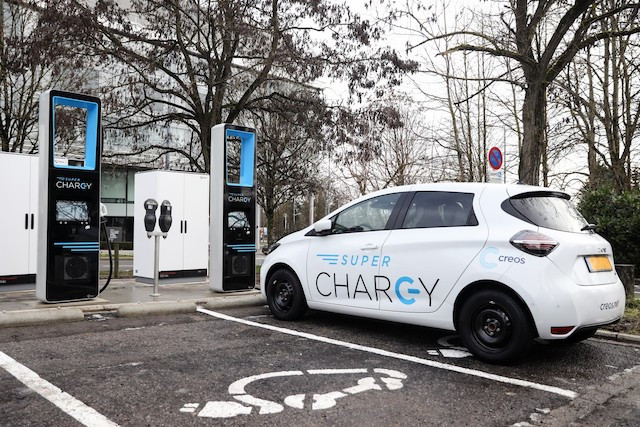Electric vehicles play a large role in Luxembourg’s plans to reduce CO2 emissions by 55% by 2030 and be climate neutral by mid-century. Transport accounts for two-thirds of greenhouse gas emissions in Luxembourg.
Average CO2 emissions of new cars are among the highest in Europe at 133g of CO2 per kilometre, above an EU average of 123g of CO2/km, according to data presented by the ministers on Wednesday.
The “Stroum beweegt - Elektresch an d’Zukunft” (Electricity moves - Electric into the future) initiative allows private and public sector actors to sign up to a new e-mobility charter.
Twenty partners have also signed up to the programme, committing to promoting e-mobility within their organisations. They include transport companies like Sales-Lentz and Emile Frisch, utilities company Creos but also home care service Hëllef Doheem or organic food wholesaler Biogros.
Signatories also commit to meetings to discuss how to better drive e-mobility forward, with a first meeting to exchange ideas and best practices scheduled for June this year. Among the topics up for discussion are making public transport fleets electric, equipping residential and non-residential buildings with charging points and expanding the public network of fast charging stations.
“2020 was a crucial year for the electrification of the road fleet with more than 2 million new registrations in Europe, including more than 5,000 in Luxembourg,” said transport minister François Bausch (Green party), adding that the “Stroum beweegt” platform would help streamlining all the different initiatives already happening in the country.
“Considering that 67% of our CO2 emissions are linked to transport, electromobility is the essential factor for achieving not only our climate goals, but also those of air quality and noise,” said environment minister Carole Dieschbourg (Green party).
The government last week announced it was extending subsidies for electric and hybrid vehicles, with buyers receiving up to €8,000 from the government when switching from combustion engine to electricity.
As of February, 10,572 electric cars were registered in Luxembourg, making up 2.4% of the market, according to government data. With 500 public charging points, Luxembourg has one of the densest networks of charging stations. In February alone, electricity equivalent to 1.1m driving kilometres were charged at the so-called Chary stations, which are fed from renewable sources.
